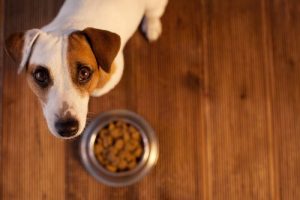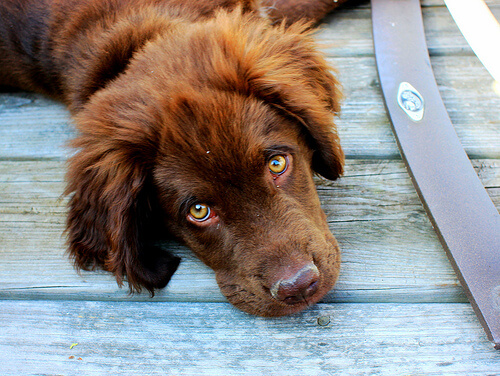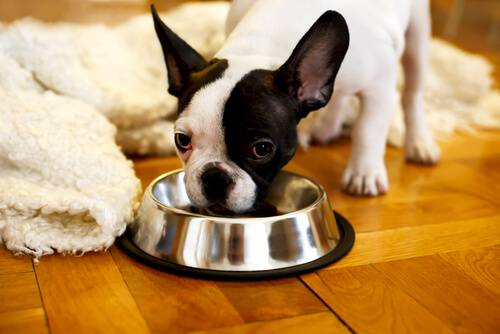If Your Dog is Having Digestive Problems, Follow These Simple Tips

Signs and Causes of Digestive Problems in Dogs
The most frequent signs that indicate a dog is having digestive problems can be:

- Diarrhea
- Vomiting
- Flatulence
- Lack of appetite
Generally, these symptoms are usually caused by:
- Food that is in poor condition
- Ingesting too much food
- Allergies
- Viruses or bacteria
- Stress
- Anxiety
If your dog has digestive problems, here are some tips you can follow to try to resolve them. For the best results, always consult a trusted veterinarian.
A Suitable Diet for Dogs with Sensitive Stomachs
If you are faced with this scenario, there are many things you can do to keep your furry friend from digestive diseases..
For example, feed your dog a diet that is appropriate and suited to their needs and respect recommended daily allowances. You will have to take different factors into account, such as:
- Age
- Size
- Level of physical activity that the animal is developing
What is the Best Diet for a Dog with a Sensitive Stomach?
You should also consider the particular characteristics of your pet, when it comes to making decisions about their diet. Particularly in the case of digestive problems. The most appropriate thing to do in this situation is to make sure your dog does not miss out on fiber in their diet. By doing this, you are ensuring good intestinal transit.
Then, to find out what food your four-legged friend needs at each stage of his or her life, you should turn to a trusted veterinarian. You can also ask the veterinarian to refer you to a specialist in animal nutrition.
And although there are foods that are designed for animals with sensitive stomachs, always consult a professional before buying them. This will determine the most suitable option for your dog.
Other Factors to Keep in Mind if Your Dog Has Digestive Problems
Some of the other things you should keep in mind if your dog has digestive problems are:
- Make sure your dog has plenty of clean, fresh water. Keep in mind that if their water is dirty, or has traces of food in it, it can be the focus for different infections. On the other hand, the water should not be too cold, as it can cause cooling and discomfort in your dog’s stomach.
- Keep your dog from binge eating. It could be due to either anxiety or stress, but some dogs eat their food far too fast. The best way to prevent this behavior is by dividing your dog’s food up into several servings a day. It is usually recommended that you feed them 3 times daily. If the motive for your dog’s binge eating is because it coexists with other dogs, who all eat together (and maybe he is afraid to run out of food), the ideal thing to do is to feed each dog separately.
- Do not introduce sudden changes into your dog’s diet, unless this is strictly recommended by a trusted veterinarian or nutritionist. Dogs are especially sensitive to alterations in their habitual feeding.
Other Tips for Helping to Avoid Digestive Problems in Dogs

Other factors that you should consider in order to keep your dog from having digestive problems are:
- Do not let your dog eat garbage or other debris, including different types of objects. There are dogs who have a tendency to devour everything they find in their path, in the street, park or in wastebaskets. Pay particular attention if your dog has this habit, and you will avoid digestive problems.
- Keep your dog away from substances that can cause intoxication. This is the case with pesticides, rat poison, antifreeze and even some plants and medicines. If the animal has vomiting and diarrhea and you believe he or she may be intoxicated, try to determine what the dog ingested and urgently visit a veterinarian.
This text is provided for informational purposes only and does not replace consultation with a professional. If in doubt, consult your specialist.